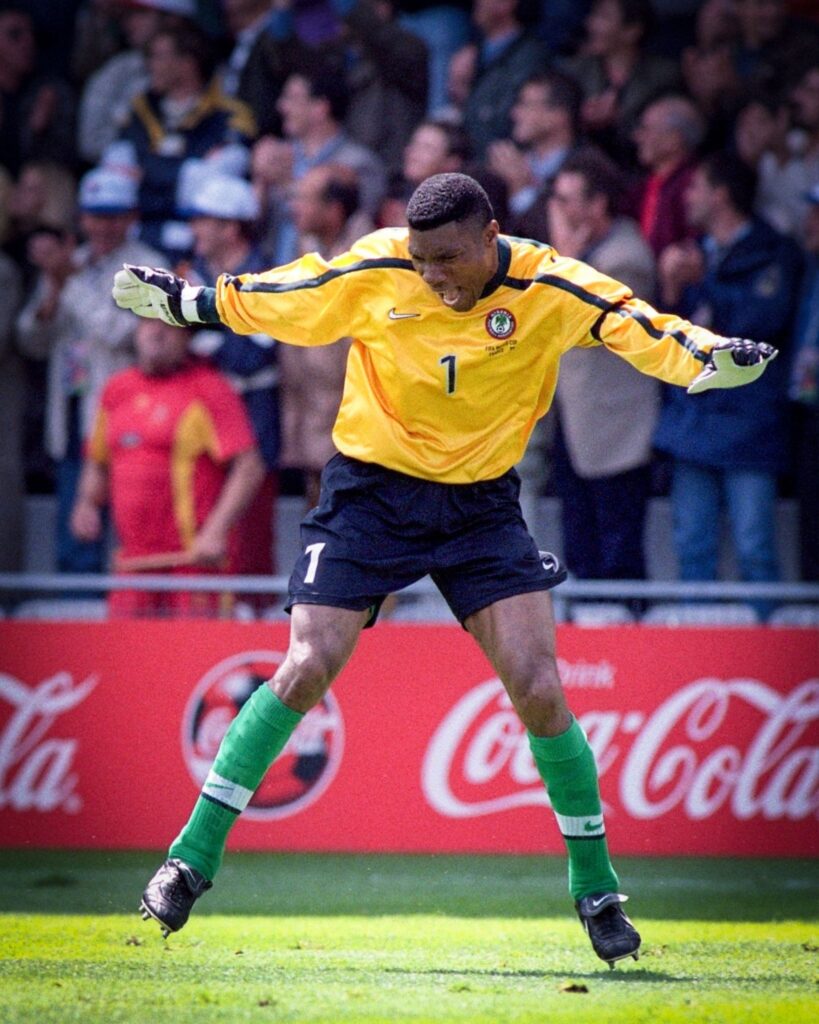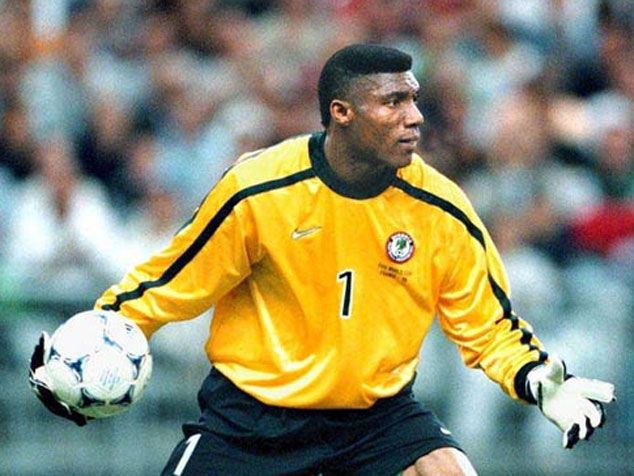The Nigerian football community is in mourning following the passing of legendary Super Eagles goalkeeper, Peter Rufai, who died on Thursday at the age of 61.
Popularly known as “Dodo Mayana”, Rufai wasn’t just a shot-stopper; he was a trailblazer, a patriot, and a lifelong servant of the game whose influence extended far beyond the goalpost.
In this tribute, we revisit 10 key facts that shaped the legacy of one of Nigeria’s greatest football icons:

1. A Prince Who Chose Football Over the Throne
Born on August 24, 1963, in Oshodi, Lagos, Rufai hailed from a royal family in Idimu. He stunned many when he turned down the opportunity to ascend the throne after his father’s death, choosing instead to follow his passion for football
2. A True Journeyman of the Game
Rufai began his professional career in Nigeria with Stationery Stores and Femo Scorpions before moving abroad. He played for clubs in Benin Republic (Dragons de l’Ouémé), Belgium (Lokeren, Beveren), Netherlands (Go Ahead Eagles), Portugal (Farense, Gil Vicente), and Spain (Hércules, Deportivo La Coruña)—gaining invaluable international experience along the way.
3. UEFA Cup Heroics in Portugal
During the 1994–95 season, he helped SC Farense qualify for the UEFA Cup for the first time in the club’s history—conceding just 38 goals in 34 league matches.
4. World Cup and AFCON Veteran
Rufai earned 65 caps for Nigeria, serving as first-choice goalkeeper at the 1994 and 1998 FIFA World Cups. He was a key figure in Nigeria’s 1994 AFCON triumph in Tunisia, a historic moment for Nigerian football.
5. A Rare Goal from the Goalkeeper
In an iconic moment, Rufai scored a penalty in Nigeria’s 6–0 win over Ethiopia during the 1993 AFCON qualifiers. It was his only goal for the Super Eagles and remains one of the rarest feats by a goalkeeper.

6. “Dodo Mayana”: The Legend Behind the Name
His nickname, “Dodo Mayana”, became legendary among fans who admired his lightning-quick reflexes, daring dives, and commanding presence in goal.

7. Back to School for the Game
After retirement, Rufai returned to the classroom in 2023, enrolling at the National Institute for Sports (NIS) in Lagos to obtain coaching credentials—demonstrating his commitment to giving back to the game.
8. A Mentor and Youth Advocate
He founded the Staruf Football Academy in Lagos and remained a strong voice for youth development, encouraging young Nigerians to balance academics with sports.

9. Discipline as a Career Foundation
Rufai often cited discipline, focus, and resilience as the pillars of his long-lasting career across Europe and Africa—values he also instilled in young players.
10. The Heartbreak of France ‘98
Despite a career full of highs, Rufai described Nigeria’s 4–1 defeat to Denmark in the 1998 World Cup Round of 16 as his most painful football memory. However, he refused to blame individuals, calling it a collective setback.
Peter Rufai’s legacy will forever be etched in the hearts of Nigerian football fans. He was more than a footballer—he was a symbol of dedication, humility, and excellence. His gloves may be hung, but his impact will never fade.









